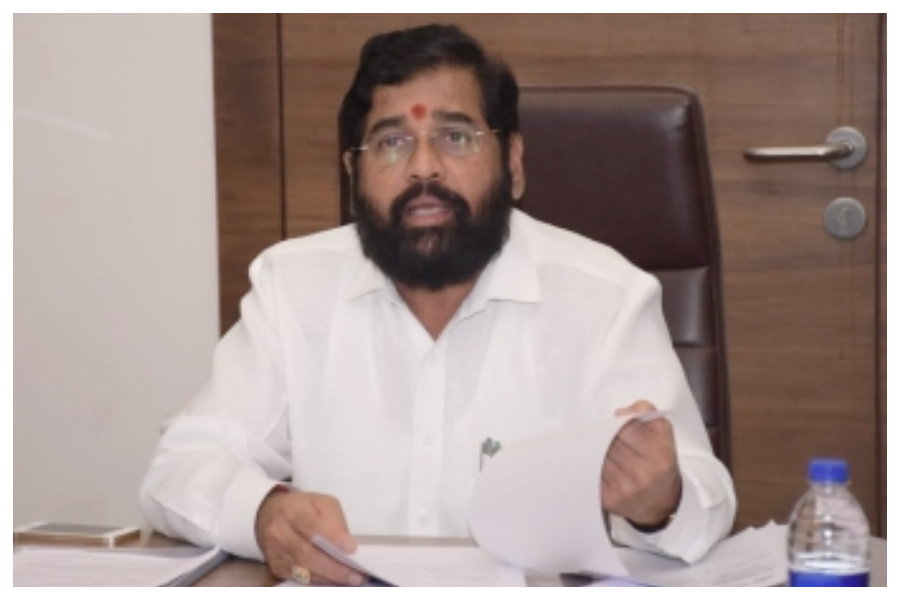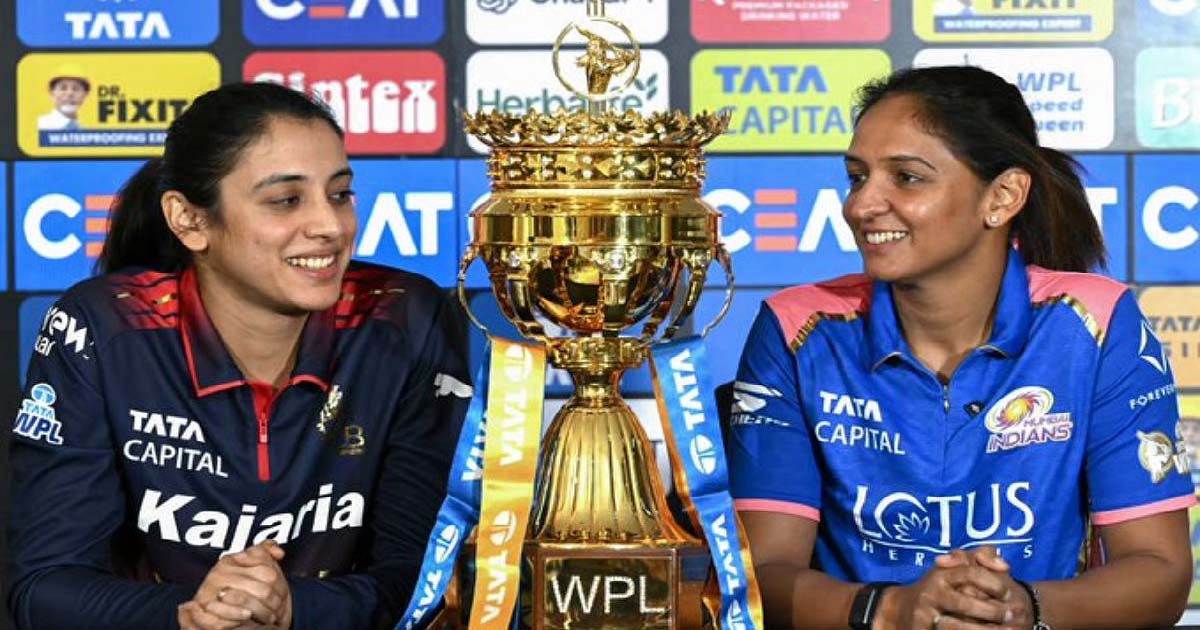National News
Intra-party dispute, not falling within the scope of defection: Shinde cou+nsel to Supreme Court

Chief Minister Eknath Shinde’s counsel on Wednesday told the Supreme Court that there is no split in the political party rather, there is a dispute over its leadership, which can be said to be an “intra-party” dispute, not falling within the scope of defection. Shinde’s counsel added, “no two Shiv Senas, two groups in a political party…”
A bench headed by Chief Justice N.V. Ramana and comprising Justices Krishna Murari and Hima Kohli was hearing petitions filed by the Shiv Sena and its rebel MLAs on constitutional issues of splits, merger, defection, and disqualification.
After hearing arguments, the top court asked Shinde’s counsel to redraft the submissions on petitions filed by the Uddhav Thackeray faction on constitutional issues, which arise out of the political crisis in Maharashtra.
Senior advocate Kapil Sibal, representing the Thackeray faction, said the rebel MLAs, Shinde’s faction, can save themselves from disqualification under the tenth schedule of the Constitution only by merging the splinter group with another party, otherwise there is no defence for them. He added that the rebel group violated the chief whip, and they are disqualified as per the tenth schedule.
Senior advocate Harish Salve, representing Eknath Shinde, said there can be a dissenting member in the political party and there has to be democracy within the party. He said, “No two Shiv Senas, two groups in a political party…”
Salve argued that there is no split in the party, instead there is a dispute over its leadership, which can be termed an “intra-party” dispute, not falling within the scope of defection. He said the anti-defection law will apply only to those who have given up the membership of a political party, and his client has not given up the original membership of the party.
Salve said anti-defection law is not a weapon for leaders to lock up members after losing the majority.
He added that if there are a larger number of MLAs who are not satisfied with the way the chief minister is functioning and want a change, why can’t they say there should be a fresh leadership contest? And, changing CM is not anti-party, rather intra-party.
Chief Justice queried Salve, can you form a new party saying the leader did not meet you? Salve replied, “I am within the party…I am the dissenting member within the party,” and also cited the split in Congress in 1969.
The Chief Justice further queried Salve, “What is the purpose of you approaching the ECI (Election Commission of India)?” Salve said after Thackeray resigned there were political developments and municipal elections were near, and who should get the symbol?
Salve added that it is not the case that the MLAs have voluntarily given up their party’s membership. “Not a case of defection… Today it is the case of intra-party rebellion and nobody has given voluntary membership from the party,” he submitted.
The top court, asking Salve to redraft the questions of law, scheduled the matter for further hearing on Thursday.
National News
Navi Mumbai Police Impose Traffic Restrictions Near D Y Patil Stadium During WPL 2026

Navi Mumbai: Navi Mumbai police will impose traffic restrictions on the service road near Dr. D. Y. Patil Stadium in Nerul from January 9 to January 17, 2026, to ensure security and smooth movement during the BCCI Women’s Premier League (WPL) T20 cricket matches.
According to the traffic control notification issued by the Turbhe Traffic Division, all types of vehicles will be barred from plying and parking on the service road between Bhimashankar Society and the L.P. Rickshaw Stand from 7 am to 11 pm on match days, as the route has been earmarked for the movement of players and dignitaries.
Deputy Commissioner of Police (Traffic) Tirupati Kakade said the restrictions are being enforced under provisions of the Motor Vehicles Act to prevent congestion and maintain law and order in the stadium vicinity during the matches.
Commuters have been advised to use the Sion–Panvel Highway, specifically the Uran Phata to L.P. Bridge stretch, as an alternative route to reach their destinations.
The restrictions will not apply to vehicles carrying essential commodities, police vehicles, fire brigade units, ambulances, government vehicles, other emergency services, and vehicles holding official passes issued by the WPL/IPL management.
Mumbai Press Exclusive News
Providing basic amenities to Mumbai is our priority, Samajwadi Party’s election manifesto released, Abu Asim Azmi claims to solve urban problems

Mumbai: The Samajwadi Party released its election manifesto for the Mumbai Municipal Corporation (BMC) elections at a press conference today. The party’s Maharashtra president Abu Asim Azmi presented this manifesto keeping in mind the basic problems of the people of Mumbai. Abu Asim Azmi has also promised free water supply along with basic amenities in the election manifesto. It has been promised to provide 700 liters of clean and free drinking water to every family in Mumbai daily. To raise the standard of education, it has been decided to improve the quality of municipal schools and provide scholarships and free facilities to needy students for higher education. It has also been declared necessary to arrange modern medical facilities, neighborhood clinics and free medicines in every ward of Mumbai in the medical department and health department. In addition, efforts have been made for equal employment opportunities. Creating new employment opportunities for the youth and making special projects to eliminate unemployment are also part of the election manifesto. Providing better facilities for the residents of slums, pucca houses and pothole-free roads in the city, bringing transparency in the functioning of BMC and eliminating corruption are also the main components of the election manifesto. Addressing the press conference, Abu Asim Azmi said that the Samajwadi Party is committed to the development of Mumbai and to providing its people with their fundamental rights. Our aim is not just to make promises but to make Mumbai a better and prosperous city.
National News
BMC Elections 2026: Mumbai Candidates Declare Massive Surge In Assets, Multi-Crore Wealth Revealed In Affidavits

Mumbai, Jan 08: Details of assets, profession and criminal records of selected candidates contesting the upcoming civic elections in Mumbai, as declared in their affidavits, are as follows:
Shaila Dilip Lande – Shiv Sena (Shinde), Ward 163 (Saki Naka)
Profession: Business
Total movable and immovable assets as of 2025: ₹8,18,76,134
Total movable and immovable assets as of 2017: ₹14,27,651
Criminal cases: 0
Found guilty: 0
Kamalakar Naik – Independent, Ward 169 (Kurla Nehru Nagar)
Profession: Business
Total movable and immovable assets as of 2025: ₹11,83,36,519
Total movable and immovable assets as of 2017: ₹1,92,76,226
Criminal cases: 2
Found guilty: 0
Dhanajay Pisal – Nationalist Congress Party (Ajit Pawar), Ward 111 (Kanjur Village)
Profession: Service
Total movable and immovable assets as of 2025: ₹21,82,57,202
Total movable and immovable assets as of 2019: ₹8,55,21,925
Criminal cases: 0
Found guilty: 0
Sonam Manoj Jamsutkar – Shiv Sena (UBT), Ward 210 (Mumbai Central)
Profession: Business
Total movable and immovable assets as of 2025: ₹14,38,84,259
Total movable and immovable assets as of 2017: ₹7,08,67,928
Criminal cases: 0
Found guilty: 0
Geeta Gawli – Akhil Bhartiya Sena, Ward 212 (Mahalaxmi–Umar Park)
Profession: Business
Total movable and immovable assets as of 2025: ₹7,26,92,393
Total movable and immovable assets as of 2017: ₹3,45,32,902
Criminal cases: 0
Found guilty: 0
Sana Haji Halim Khan – Shiv Sena (UBT), Ward 96 (Bandra East)
Profession: Not mentioned
Total movable and immovable assets as of 2025: ₹9,46,03,435
Total movable and immovable assets as of 2017: Not contested
Criminal cases: 0
Found guilty: 0
Nehal Shah – Independent, Ward 177 (Matunga)
Profession: Business
Total movable and immovable assets as of 2025: ₹7,04,11,095
Total movable and immovable assets as of 2017: ₹1,69,77,255
Criminal cases: 0
Found guilty: 0
Rajul Sameer Desai – BJP, Ward 56 (Goregaon)
Profession: Business
Total movable and immovable assets as of 2025: ₹24,28,81,925
Total movable and immovable assets as of 2017: ₹1,79,69,000
Criminal cases: 0
Found guilty: 0
Prabhakar Shinde – BJP, Ward 106 (Mulund)
Profession: Business
Total movable and immovable assets as of 2025: ₹17,63,01,181
Total movable and immovable assets as of 2017: ₹57,46,971
Criminal cases: 0
Found guilty: 0
Neil Somaiya – BJP, Ward 107 (Mulund)
Profession: Business
Total movable and immovable assets as of 2025: ₹9,89,21,872
Total movable and immovable assets as of 2017: ₹1,99,37,809
Criminal cases: 0
Found guilty: 0
-

 Crime3 years ago
Crime3 years agoClass 10 student jumps to death in Jaipur
-

 Maharashtra1 year ago
Maharashtra1 year agoMumbai Local Train Update: Central Railway’s New Timetable Comes Into Effect; Check Full List Of Revised Timings & Stations
-

 Maharashtra1 year ago
Maharashtra1 year agoMumbai To Go Toll-Free Tonight! Maharashtra Govt Announces Complete Toll Waiver For Light Motor Vehicles At All 5 Entry Points Of City
-

 Maharashtra1 year ago
Maharashtra1 year agoFalse photo of Imtiaz Jaleel’s rally, exposing the fooling conspiracy
-

 National News1 year ago
National News1 year agoMinistry of Railways rolls out Special Drive 4.0 with focus on digitisation, cleanliness, inclusiveness and grievance redressal
-

 Maharashtra1 year ago
Maharashtra1 year agoMaharashtra Elections 2024: Mumbai Metro & BEST Services Extended Till Midnight On Voting Day
-

 National News1 year ago
National News1 year agoJ&K: 4 Jawans Killed, 28 Injured After Bus Carrying BSF Personnel For Poll Duty Falls Into Gorge In Budgam; Terrifying Visuals Surface
-

 Crime1 year ago
Crime1 year agoBaba Siddique Murder: Mumbai Police Unable To Get Lawrence Bishnoi Custody Due To Home Ministry Order, Says Report












